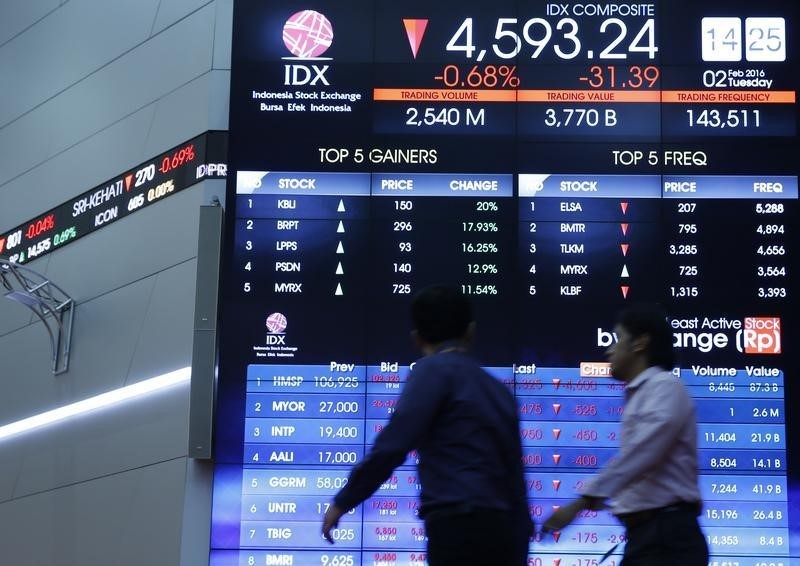By Nigel Stephenson
LONDON (Reuters) - Glimmers of recovery in oil prices on Wednesday lifted European stock markets off their lows and dimmed the allure of the Japanese yen, gold and ultra-low-risk government debt.
U.S. crude moved back above $30 a barrel after a third consecutive day of oil price losses in Asia had weighed on regional stock markets.
Global benchmark, Brent, was last 44 cents higher at $33.15 a barrel.
Oil prices, down 70 percent in the last 18 months as investors worry about global growth and an economic slowdown in China, have been a major factor behind a torrid start to the year for stocks.
Last week's surge in U.S. crude stocks and the prospect of higher exports from Iran have added to that pressure.
The FTSEurofirst is down 8.5 percent so far this year while the U.S. S&P 500 has lost 6.9 percent.
Market turmoil has in turn boosted expectations of further central bank stimulus measures. The Bank of Japan (BOJ) last week became the latest major central bank to introduce negative interest rates and many in markets expect the European Central Bank (ECB) will ease policy further next month.
"There is still a lot of vulnerability in stock markets and the euro remains quite strong which is adding pressure on the ECB to take action," BNP Paribas (PA:BNPP) European rate strategist, Patrick Jacq, said.
The pan-European FTSEurofirst 300 stocks index was last down 0.5 percent, hit by weak earnings reports. Germany's DAX index fell 0.9 percent and Britain's FTSE 100 was off 0.6 percent.
Data on Wednesday showed euro zone businesses had a disappointing start to 2016, with growth in January matching the worst seen last year.
On Wednesday, MSCI's broadest index of Asia-Pacific shares outside Japan fell 1.7 percent.
Japan's Nikkei closed down 3.2 percent, hit by weak oil and a strong yen, wiping out almost all the gains it made after the BOJ became the latest major central bank to introduce negative interest rates.
Chinese shares dipped 0.4 percent.
Stock market weakness has driven investors into the shelter of low-risk government debt. Two-year yields on bonds from euro zone benchmark issuer Germany and Japanese five- and 10-year yields hit record lows on Wednesday, while yields on 10-year U.S. Treasury bonds hit 10-month lows on Tuesday.
German 10-year yields were last marginally lower on the day at 0.31 percent.
The slight recovery in oil lifted the Australian dollar 0.2 percent to $0.7048.
YEN SOUGHT
The Japanese yen, which tends to be bought by investors in times of risk aversion, was 0.2 percent stronger on the day at 119.71 per dollar. It hit a six-week low of 121.70 per dollar after the BOJ's policy meeting on Friday.
"Risk sentiment is pretty fragile, so we are seeing yen being supported," ING currency strategist, Petr Krpata, said.
The euro dipped 0.1 percent to $1.0910 while sterling, which hit a three-week high on Tuesday after European Council President Donald Tusk presented proposals to keep Britain in the European Union, firmed 0.4 percent to $1.4452.

Gold, also viewed as a safe-haven by investors, held close to three-week highs. It last traded at $1,126.20, down slightly on the day.